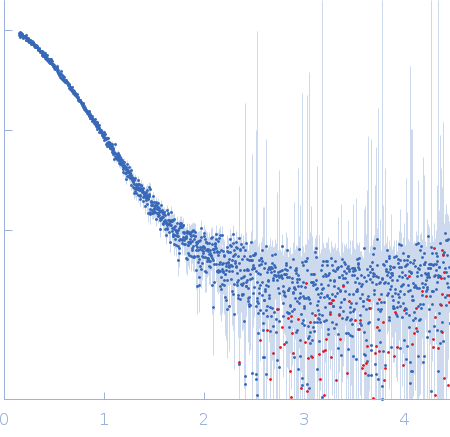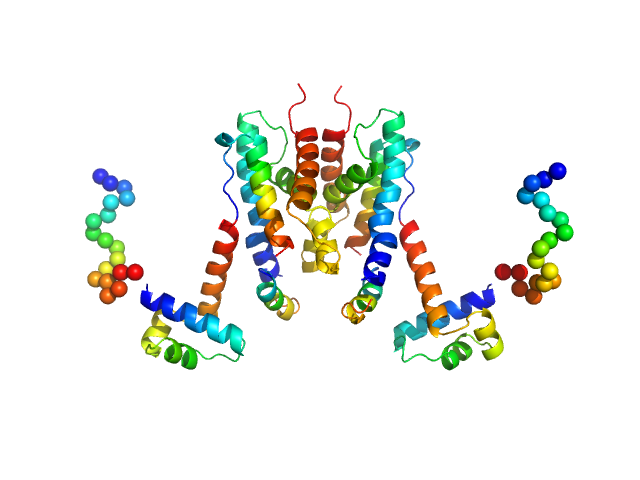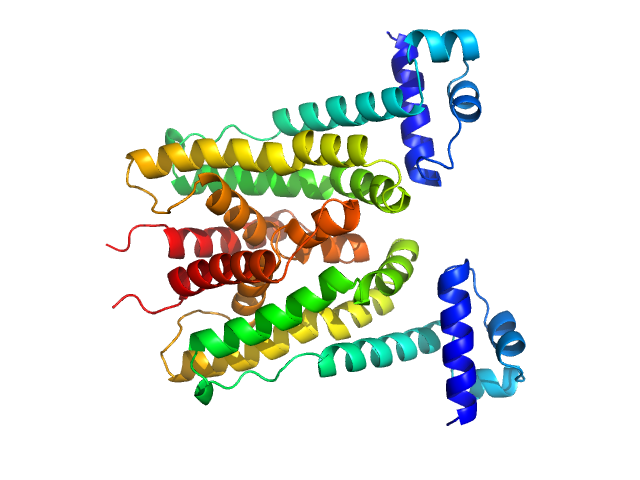| MWI(0) | 42 | kDa |
| MWexpected | 48 | kDa |
| VPorod | 93 | nm3 |
|
log I(s)
6.97×103
6.97×102
6.97×101
6.97×100
|
 s, nm-1
s, nm-1
|
|
|
|

|
|

|
|
Synchrotron SAXS data from solutions of FrrA in 20 mM Na2HPO4, 50 mM NaCl, 50 mM imidazole, pH 7.5 were collected on the EMBL P12 beam line at PETRA III (DESY, Hamburg, Germany) using a Pilatus 2M detector at a sample-detector distance of 3.1 m and at a wavelength of λ = 0.124 nm (I(s) vs s, where s = 4πsinθ/λ, and 2θ is the scattering angle). Solute concentrations ranging between 0.9 and 8.3 mg/ml were measured at 10°C. 20 successive 0.050 second frames were collected. The data were normalized to the intensity of the transmitted beam and radially averaged; the scattering of the solvent-blank was subtracted. The low angle data collected at lower concentration were merged with the highest concentration high angle data to yield the final composite scattering curve.
Storage temperature = UNKNOWN |
|
|||||||||||||||||||||||||||||||||||||||